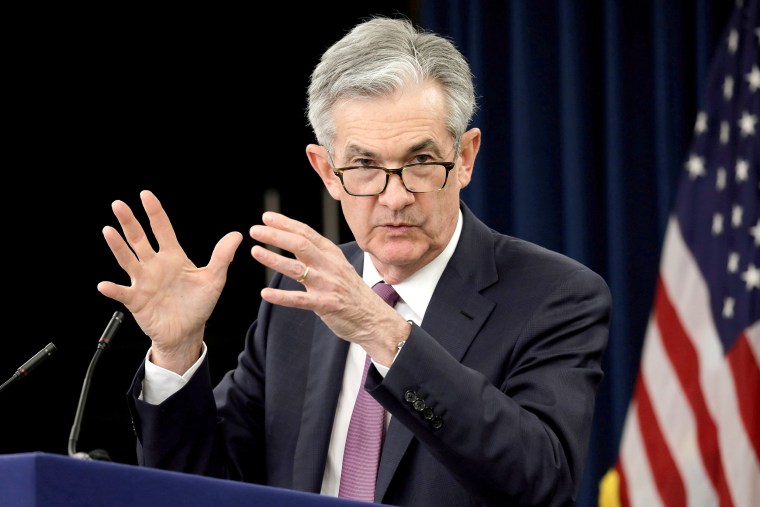Wall Street will be listening closely to Federal Reserve Chairman Jerome Powell’s remarks to Congress this week to see if the central bank head offers any clarity about the likelihood of a rate cut this month following a strong June jobs report. Market observers say, though, that an equally important message they will be listening for in Powell’s speech has very little to do with the minutiae of rate-setting.
When Powell appears in front of the House Financial Services Committee on Wednesday and the Senate Banking Committee the following day, investors are seeking reassurance that Powell will reaffirm his commitment to keeping the Federal Reserve as an independent and apolitical body in the face of complaints and threats coming from the White House to fire or demote him.
As recently as Sunday, President Donald Trump asserted that the Dow Jones Industrial Average — which recently has fallen off record highs on worries over slowing global growth and trade tensions weighing on earnings — would be up to 10,000 points higher if the Fed cut rates and halted its balance sheet unwinding.
“You want central banks to make what is the best decision possible for the economy and the broader markets. That opinion should not be influenced by political developments,” Joseph LaVorgna, managing director and chief economist of the Americas at Natixis, said. LaVorgna characterized the concern over politicization as self-inflicted, a perhaps unintended consequence of the central bank’s unprecedented economic intervention in the wake of the financial crisis. “The Fed essentially brought this problem on itself,” he said, and the Fed has to grapple with a set of expectations that might no longer mesh with the course it needs to follow.
At a CNBC event Tuesday, National Economic Council director Larry Kudlow downplayed the president’s ire, saying of Powell, “There’s no effort to remove him. I will say that unequivocally at the present time.”
“I’m not here to bash the Fed,” Kudlow said, although he also expressed criticism over the bank’s approach to policy, suggesting that officials could “take back the December hike.”
Previously, Powell has said he plans to serve out his term and that he is confident in the legal protections that prevent the president from firing him over differences of opinion on policy matters. Economists expect more of the same this week.
“He’ll probably be asked directly, do you think President Trump can fire you?” said Dan North, chief economist at Euler Hermes North America, saying Powell is likely to respond in a similar fashion as he has in the past. “I expect him to repeat the same lines in a very measured fashion with very little variation.”
While Trump’s excoriations might be a distraction from matters Powell would prefer to focus on, analysts say he has little choice but to push back against them, even when this leads to another round of threats or insults delivered via the president’s Twitter feed.
“Every time Powell reiterates his personal independence and statutory protections from White House interference or Trump demands, it calms the market,” said Karen Petrou, managing partner of consulting firm Federal Financial Analytics. “This back-and-forth has gone on long enough that markets are confident that Trump can’t take over Fed policy, but they are nervous. The more reassurance, the better markets feel and the better markets feel, the less volatile they are,” she said.
Some market observers suspect the political pressure has already crept into the Fed’s language and public positioning. “In December, I detected some concern about Trump’s jawboning at him,” North said. “There was some indication that perhaps changing his tone so rapidly over the course of a couple of months indicated to me that perhaps there was some pressure there.”
Analysts say Powell has a delicate balancing act. While investors would be — rightly — alarmed at the appearance of policymakers capitulating to Trump’s demands, they also want to see a central bank that is engaged with and responsive to the forces shaping both the U.S. and global economies, while managing a time horizon that stretches beyond any individual administration. “It’s not inflation today, it’s inflation tomorrow that the Fed has had to worry about, because it takes a full year for monetary policy actions to flow through to the economy,” North said. “Employment is a lagging indicator, and they’ve got to look forward.”
North said Powell could give lawmakers — and investors — reassurance this week, but ultimately, their questions are less about his staying the course and more about his mercurial boss. “He’s got pretty bipartisan rapport. I think the questions are less about him than about Trump,” North said. “The question is more about what the president is trying to do.”
